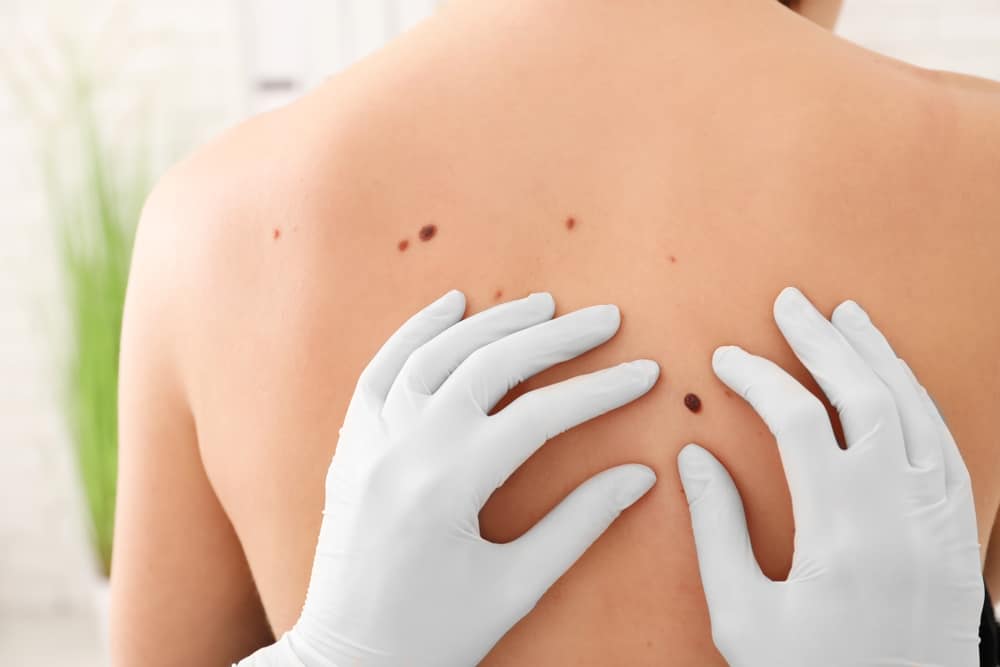6 Signs That You May Have Skin Cancer

1. Moles
When it comes to melanoma, the top thing you should look for is either new moles or moles that have changed over time. Moles that have enlarged, have a new or abnormal pigmentation, or have an asymmetrical shape are the most suspicious.
2. Scaliness
Dry, scaly skin may be an indication that you have actinic keratosis, a condition that affects portions of the skin that receive direct sunlight. Unfortunately, actinic keratosis may turn into squamous cell carcinoma within a few years. Try using a moisturizer on your scaly skin — if the scaliness persists, it’s time to see a doctor.
3. Red Patches
Itchy, red patches on your skin can be a sign that you have basal cell carcinomas. You can distinguish these patches from an ordinary rash because they are slightly raised, and they may also feature some shiny, multi-colored bumps.
4. Persistent Itchiness
Newly formed cancerous lumps are sometimes itchy, which is why they can be mistaken for a bug bite. The way to know it is more serious is if the bump stays raised and the itchiness persists.
5. Lesions
Lesions typically look like flat spots on the skin. Since they are not irritating, they are easy to overlook. However, if you notice lesions, especially on your face or legs, you should speak to a doctor to determine if they are Kaposi sarcoma.
6. Any Skin Change
Because skin cancer is so prevalent, it is worthwhile to pay attention to any significant change on your skin whether it be a new growth, a new texture, or new pigmentation. With early detection making the treatment of skin cancer much easier, you may be thankful that you were overly cautious and brought your concern to the attention of your physician.
How Plastic Surgery Group at City Centre Can Help
If you have a cancerous or potentially cancerous growth, the best solution is usually to remove it before the cancer can spread. By choosing a plastic/reconstructive surgeon for this procedure, you can ensure that an experienced doctor will safely remove and cover up the defect to maintain its cosmetic appearance. For a skin cancer consultation in Surrey, B.C., please call 604-589-6021.
